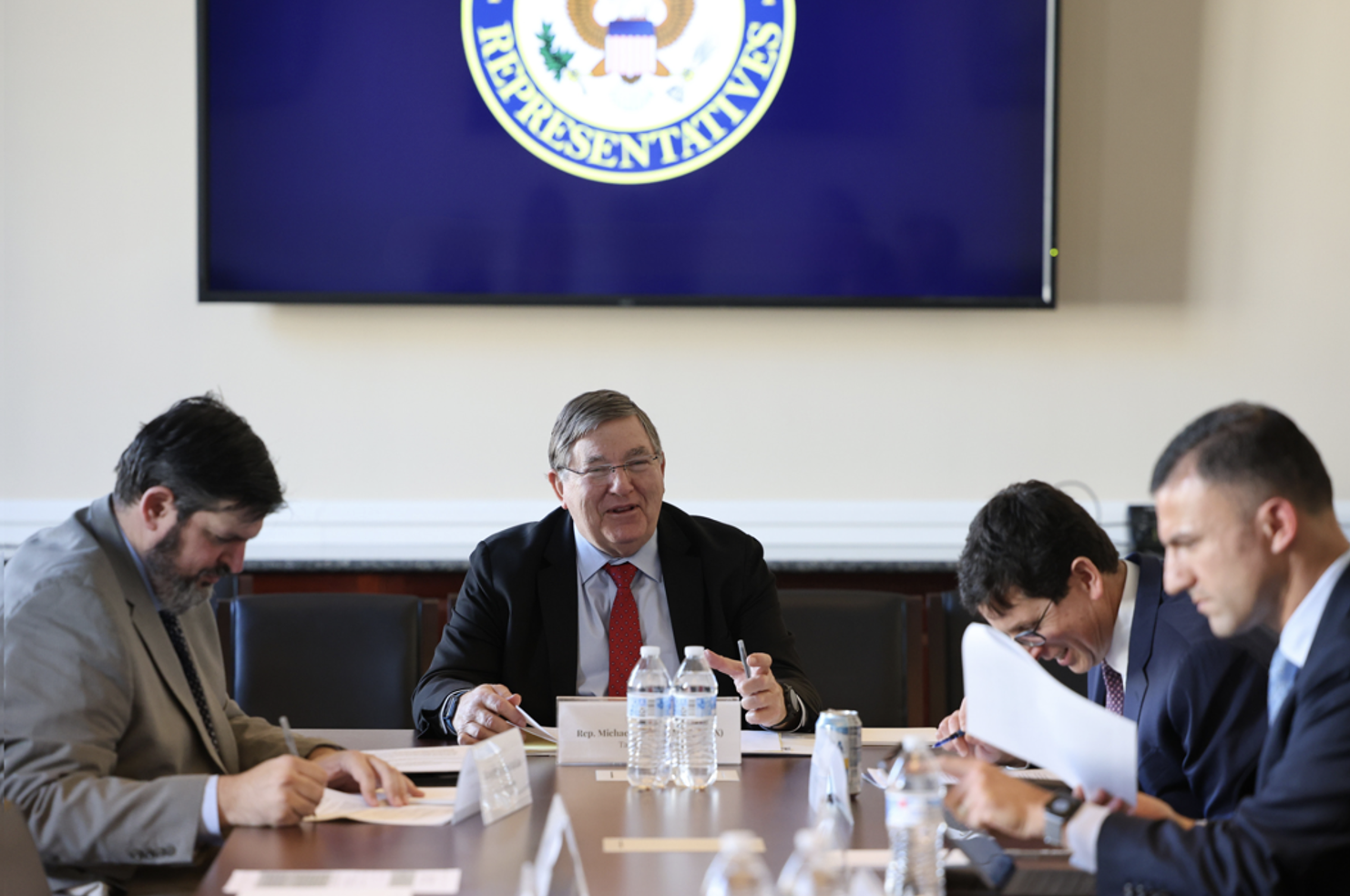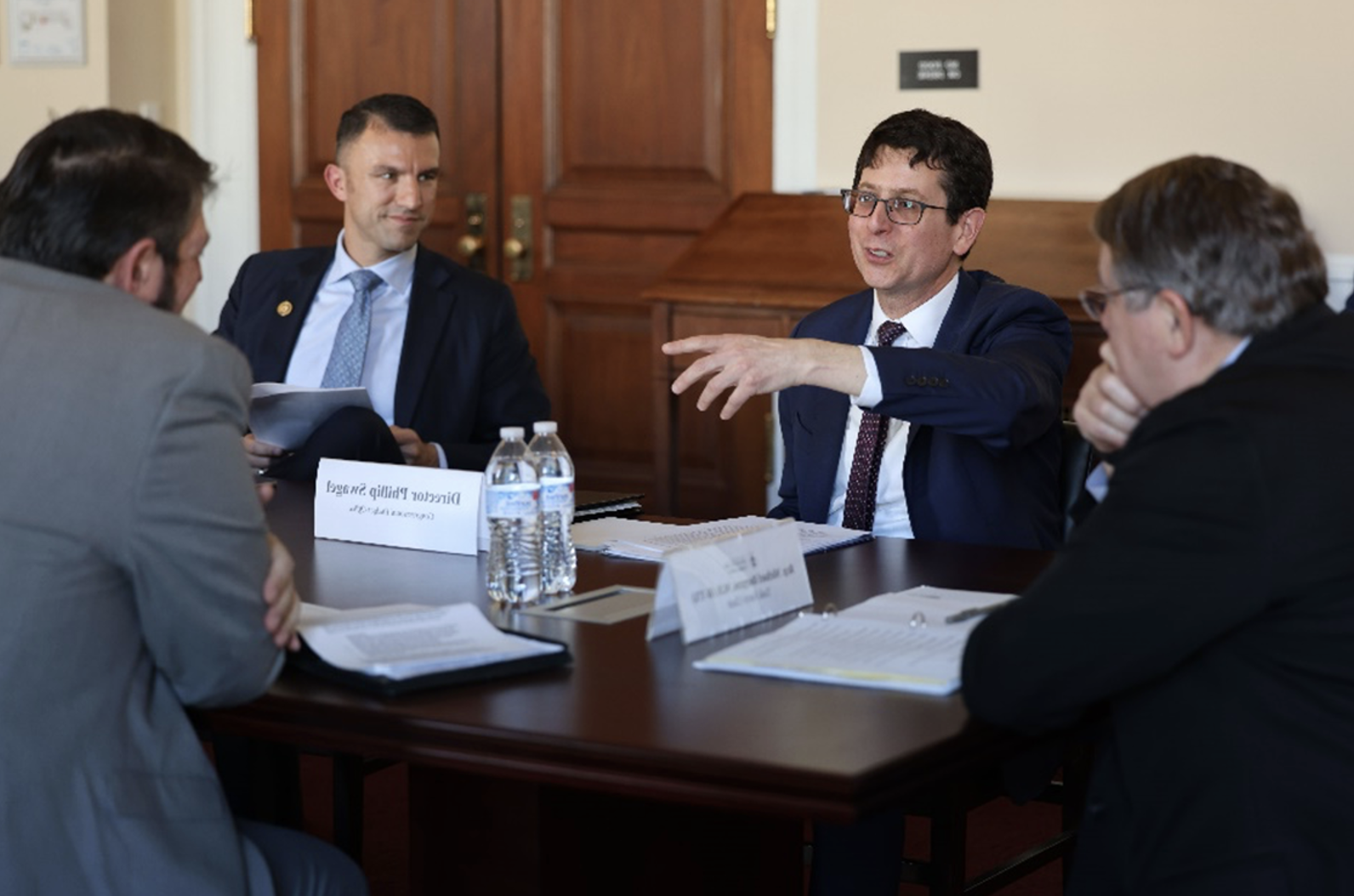Budget Health Care Task Force Examines Obamacare Program Driving Deficits
WASHINGTON, D.C. – On Tuesday, March 12, the House Budget Committee Health Care Task Force (HCTF), led by Chair Michael C. Burgess, M.D. (R-TX), held its second member roundtable, examining the budgetary effects of the Center for Medicare and Medicaid Innovation (CMMI), which was originally projected to save tax dollars, but is now adding billions to our mounting debt.
This roundtable brought together members of the HCTF, Director Phillip Swagel of the nonpartisan Congressional Budget Office (CBO), and Demetrios Kouzoukas of Paragon Health Institute, who previously served as the head of the Medicare program under the Trump administration.
Roundtable participants discussed the recent CBO report, which found CMMI is not realizing projected tax dollar savings, along with potential opportunities to reform the center.

Pictured left to right: Demetrios Kouzoukas with Paragon Health Institute, HCTF Chair Michael C. Burgess (R-TX), CBO Director Phillip Swagel, and Rep. Rudy Yakym (R-IN).

Pictured left to right: Demetrios Kouzoukas with Paragon Health Institute, Rep. Rudy Yakym (R-IN), CBO Director Phillip Swagel, and HCTF Chair Michael C. Burgess (R-TX).
Background:
Established under the Affordable Care Act (ACA) in 2010, CMMI receives $10 billion in mandatory funding every decade to conduct pilot programs that test new payment models in federal health programs, primarily Medicare.
In 2010, CBO projected that CMMI would produce net savings over the 10-year budget window. Notably, given the CBO’s estimate that CMMI would create budgetary savings, establishing CMMI was used to “offset” some of the spending priorities in the ACA to abide by Congressional budget requirements.
However, in September 2023, CBO revised its original analysis of CMMI, finding that not only is CMMI not saving money, but it has increased federal spending and will continue to do so in the future. In fact, CBO found that between 2011 and 2020, CMMI increased the debt by $5.4 billion dollars and will cost an additional $1.3 billion by 2030.
See HERE for the House Budget Committee release on “The Cost Of...The Center for Medicare and Medicaid Innovation.”
The Bottom Line:
At a time when our Nation’s debt is over $34 trillion and growing, CMMI has cost taxpayers billions of dollars despite being marketed as a way to reduce the cost of the ACA.
CMMI has not developed and implemented models with cost-saving potential as quickly as CBO projected in 2010, resulting in a significant difference between the savings initially estimated by CBO and the billions in deficit spending that occurred during the first decade of CMMI’s operation.
CMMI did not even exhaust its first $10 billion tranche of mandatory funding prior to receiving another $10 billion in funding in 2020, providing the agency with an overflowing amount of taxpayer money to use without Congressional approval.
Policymakers have a responsibility to advance reforms to reduce federal health care spending and improve patient access to quality and affordable health care — this includes conducting important budgetary oversight and examining the benefit and costs of mandatory programs that run on autopilot, including CMMI, which will continue to receive $10 billion in mandatory funding every decade in perpetuity.
The HCTF continues seeking solutions to improve patient outcomes and reduce federal health spending. As part of these efforts, the HCTF is conducting rigorous oversight of mandatory federal health spending as well as CBO’s analyses of proposed policies.


